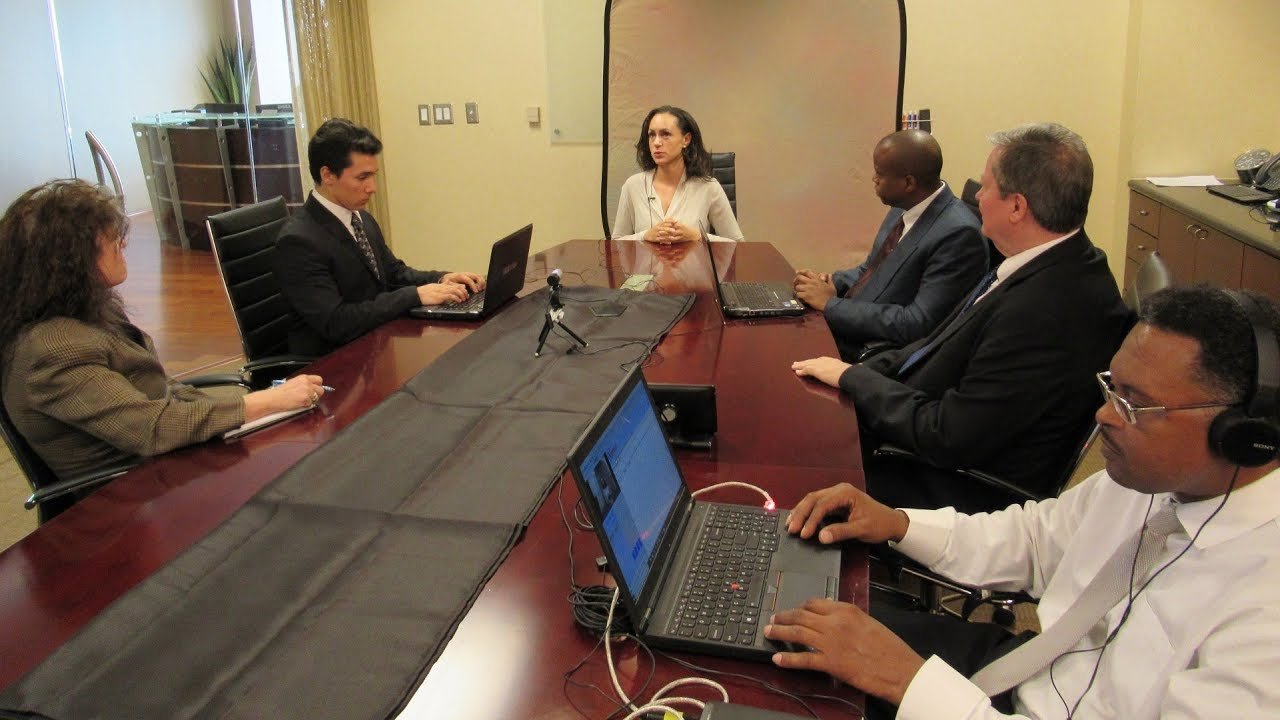The Olympics of Court Reporting

When a courtroom drama is shown on television or in the movies, the most inconspicuous person in the scene is the court reporter. Most people don’t notice the silent guardian of the record, and if they do, they generally don’t know or understand what they do. Since a nationwide shortage of court reporters has been disrupting court and deposition proceedings for a number of years, everyone in the legal field is feeling their absence.
The Wall Street Journal recently wrote about this “Silent Problem Facing the Nation’s Courtrooms” and its consequences.
“A few months ago, when court reporter Shari Krieger,48 years old, got sick, she called several firms to find a replacement. When no one was available, the judge had to reschedule the entire day. ‘Everybody was there, ready to go,’ said Ms. Krieger, who works in the Fort Worth, Texas, area. ‘To know that nothing can happen without you—that’s a big responsibility.'”
In 2015, Bureau of Labor Statistics data indicated that there were 17,700 court reporters in the United States. In May 2018 that number had declined by approximately 18 percent, down to 14,500. As older court reporters have retired, there haven’t been enough new court reporters to take their place, likely due to in part to the fact that the profession isn’t very well known.
Gaining the speed necessary to graduate from a traditional court reporting school can take a number of years, and then the student must pass a certification test before they’re legally able to work in many states. In some states, such as California, the percentage of students who pass the certification exam is extremely low. For example, only six out of 111 people who sat for California’s March 2019 certification exam passed. California also has one of the most extreme court reporter shortages.
Out of desperation, some attorneys and court systems have attempted to rely on unmonitored digital recording devices to record a hearing or a deposition and then hire a transcription company to produce a “verbatim” transcript. This has sometimes had disastrous results when there is an equipment malfunction, background noise, a mumbling witness, or when the participants all speak at the same time. And, an in-courtroom court reporter is required for most serious criminal cases.
Fortunately, electronic court reporters are becoming more prevalent and accepted by attorneys and judges alike. Electronic reporters use specialized software and high-quality audio-visual equipment to record testimony. The software allows them to record each speaker’s audio feed on a separate track to ensure complete accuracy of the transcript. They also take contemporaneous notes of the proceedings within the software, which are then linked to that spot in the audio record. An electronic court reporting student can complete their training and certification in a fraction of the amount of time it takes a traditional student to do the same, and with an exponentially higher success rate.
Hopefully, courtroom administrators, licensing boards, and attorneys will continue to make way for innovative ways to solve the court reporter shortage.
For all of your court reporting needs in North Carolina, please call on NC Court Reporter. We have experienced professionals here to serve you. It’s easy to schedule online.
In you need help deciding exactly what services you require, our scheduling team is ready to assist you: 910-777-5375.